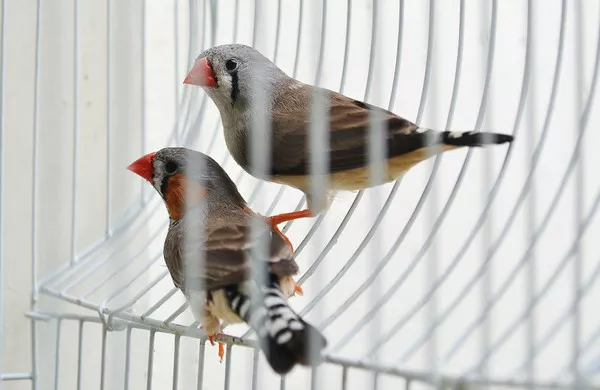Corn snakes (Pantherophis guttatus) are one of the most popular pet snakes in the world due to their docile nature, vibrant color patterns, and relatively easy care requirements. However, when it comes to understanding their emotional capabilities, many pet owners may wonder: Can corn snakes feel emotions? This question brings us into the complex world of animal behavior, cognition, and emotional experiences. While it may seem difficult to imagine a cold-blooded reptile experiencing emotions like humans or even mammals, scientific research into animal emotions is increasingly challenging old assumptions about how non-human creatures experience the world. In this article, we’ll explore what emotions are, whether snakes have the biological basis for experiencing emotions, and what behavioral signs might suggest that corn snakes can have feelings.
What Are Emotions?
Before diving into whether corn snakes can feel emotions, it’s helpful to define what emotions are. Emotions are complex reactions that animals have to various stimuli, often involving both physiological and psychological components. In mammals, emotions are typically linked to the brain’s limbic system, which regulates feelings like happiness, fear, and anger. These emotions are often associated with survival behaviors, such as fleeing danger, forming social bonds, or finding food.
For many years, scientists believed that only mammals and some birds were capable of experiencing emotions due to the complexity of their brains. Reptiles, on the other hand, were considered primitive in terms of emotional capacity. However, research has gradually suggested that this view may be too simplistic. While reptiles like snakes may not experience emotions in the same way as mammals, they are still capable of some form of emotional responses to their environment.
The Nervous System of Snakes
To understand whether corn snakes can feel emotions, we must first look at their nervous system and brain structure. Corn snakes, like all reptiles, have a simpler brain than mammals. Their brains lack a fully developed neocortex, the part of the brain responsible for higher cognitive functions such as complex thought and emotion in humans. However, snakes do have other brain structures, such as the brainstem and limbic system, which help them respond to basic stimuli like hunger, danger, and mating needs.
One of the most significant differences between reptilian brains and mammalian brains is the level of sophistication in processing complex emotional responses. While mammals have a well-developed limbic system that plays a major role in experiencing emotions, snakes have a more primitive form of emotional processing. That means that while corn snakes can respond to emotional stimuli, it is likely in a much simpler, instinctual way compared to more emotionally complex animals.
Are Corn Snakes Capable of Feeling Emotions?
The answer to this question is not straightforward. While it is unlikely that corn snakes experience emotions in the same way that humans or even other animals like dogs or cats do, there is evidence suggesting that they may have basic emotional responses to their environment. These responses are likely based on survival mechanisms and instinctive behaviors rather than complex feelings.
Fear and Stress
One of the most apparent emotional responses in snakes is fear. Corn snakes, like all animals, are hardwired to sense danger and react to it. This fear response is essential for their survival in the wild. When threatened, corn snakes may coil into a defensive position, hiss, or attempt to escape. These behaviors are instinctual and are designed to protect the snake from potential predators.
Interestingly, corn snakes can also experience stress, which is related to fear. Stress can be triggered by factors such as sudden changes in their environment, overcrowding, or poor care. A stressed corn snake might display behaviors such as hiding, refusal to eat, or aggressive tendencies. These signs are not necessarily the same as human emotions like anxiety, but they do indicate that the snake is experiencing discomfort due to external factors. The ability to feel stress suggests that corn snakes can perceive negative stimuli, although it is not clear if they process these feelings the same way humans do.
Pleasure and Comfort
While it may be difficult to imagine, some researchers suggest that reptiles, including snakes, can experience basic forms of pleasure. Corn snakes, for example, may enjoy basking in warmth. Like all cold-blooded animals, they need external heat sources to regulate their body temperature. When they find a warm spot, they may remain there for extended periods, which could be interpreted as a form of comfort. While this behavior is likely more instinctive than emotional, it is still an indication that corn snakes respond positively to certain environmental conditions.
In captivity, some corn snake owners report that their snakes seem to exhibit behaviors suggesting a level of comfort or contentment, such as resting in their enclosures, moving around freely, and feeding regularly. These behaviors are signs of a healthy and well-adjusted snake. However, it is important to note that these behaviors are probably driven by physical comfort rather than any deep emotional state.
Bonding with Humans
Another question that often arises is whether corn snakes can form bonds with their human owners. While it is difficult to say whether these bonds are based on emotional attachment, there is evidence that corn snakes can become familiar with their caretakers. Some snake owners report that their corn snakes seem to recognize them and may respond calmly to handling. For example, corn snakes may become less stressed when their owners handle them regularly or may seem to tolerate human interaction without displaying signs of fear or aggression.
However, it is important to note that snakes are not social animals in the same way that mammals like dogs and cats are. While dogs may seek out affection from their owners, snakes are more likely to view humans as neutral entities that are part of their environment. This means that while a corn snake might learn to tolerate its handler or even feel comfortable in their presence, it is unlikely that the snake forms an emotional bond as a human or a dog might.
The Role of Instinct
Much of a corn snake’s behavior is driven by instinct rather than emotion. For example, snakes are natural predators and must rely on their instincts to hunt, find shelter, and mate. These behaviors are often automatic and driven by the snake’s biological needs. The survival instinct is one of the most powerful driving forces in any animal, and while it may sometimes look like an emotional reaction, it is more accurately described as a behavioral response to environmental stimuli.
For instance, a corn snake that is hungry will actively hunt for food. Once it catches its prey, it may feel a sense of satisfaction, but this is more about fulfilling its nutritional needs than an emotional experience. Similarly, a snake that is frightened will likely retreat into a defensive posture, not because it is emotionally distressed but because it is acting on its survival instincts.
Behavior That Could Be Interpreted as Emotional Responses
Although it’s clear that corn snakes have limited emotional capacity, there are still certain behaviors that could be interpreted as emotional responses to specific situations. Understanding these behaviors can help pet owners better understand their corn snakes and provide the most appropriate care.
1. Tolerating Handling
Many corn snakes will tolerate handling, and some even seem to enjoy it. A snake that feels safe and secure in its environment may show little to no fear when handled. However, it’s important to remember that snakes do not experience affection in the way mammals do. Their willingness to tolerate handling may simply be because they have become familiar with the person handling them or because they feel safe in their presence.
2. Exploring and Curiosity
Snakes, including corn snakes, are naturally curious creatures. They will often explore their environment, especially if it is new or if they feel safe. This behavior is likely not driven by emotional curiosity in the human sense but is instead a survival mechanism. In the wild, exploring allows the snake to find food, shelter, and mates. In captivity, exploring their enclosures can help prevent boredom and ensure that they have access to all the necessary resources.
3. Feeding Responses
Feeding is another behavior that can sometimes be interpreted as an emotional response. Corn snakes are typically very responsive to feeding time. Their hunting instincts kick in when they detect prey, and they will often exhibit excited behavior when they see their food. This excitement is more about fulfilling a biological need than it is about feeling pleasure from eating, but it still shows that the snake has an emotional response to certain stimuli in its environment.
The Ethical Considerations of Keeping Corn Snakes
While it’s clear that corn snakes can have basic emotional responses such as fear and comfort, it’s important to be mindful of the ethical considerations when keeping them as pets. Corn snakes, like all animals, deserve to be treated with respect and care. This includes providing them with an appropriate habitat, feeding them properly, and minimizing stress in their environment.
For example, overcrowding, improper handling, or changes in their environment can all cause stress in a corn snake. Pet owners should strive to create a peaceful and enriching environment for their snakes to ensure that they lead healthy, low-stress lives. While corn snakes may not have the emotional complexity of a dog or cat, their well-being still relies on being treated humanely and with consideration for their natural instincts.
Conclusion
In conclusion, while it is unlikely that corn snakes feel emotions in the same way that humans or mammals do, they are capable of basic emotional responses to their environment. Fear, stress, comfort, and some degree of familiarity with their handlers are behaviors that suggest corn snakes can react to emotional stimuli. However, these responses are likely more instinctual and driven by survival needs rather than deep emotional experiences.
Understanding the behavioral and physiological limitations of corn snakes can help pet owners provide the best care possible. While they may not form bonds in the same way as more socially complex animals, corn snakes can still develop a sense of safety and comfort in their environment. Ultimately, whether corn snakes feel emotions or not, they still deserve compassionate and thoughtful care to ensure they live healthy, fulfilling lives as pets.
Related Topics:



















